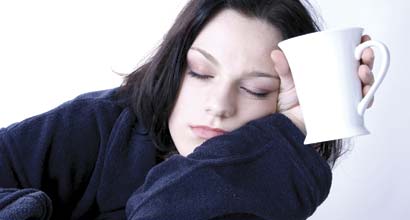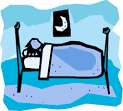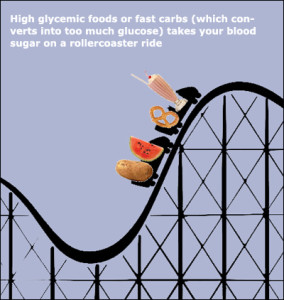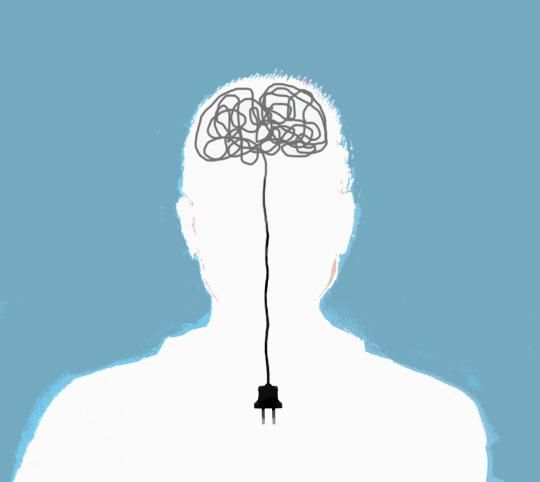 Your energy shortage could mean that a hidden medical or psychiatric condition is depleting your vim and vigor. Or, it could be a sign that vitality-robbing habits are sabotaging your get up and go.
Your energy shortage could mean that a hidden medical or psychiatric condition is depleting your vim and vigor. Or, it could be a sign that vitality-robbing habits are sabotaging your get up and go.If you suspect that a health condition is robbing your energy, see your doctor. Some prescribed medication: such as anti-histamines, antidepressants, pain medication and heart drugs can leave you feeling tired. Ask about adjusting the dose or suggested alternatives.
Vitality Robbing Habits That Zap Your Energy And How To Fix Them.
1. Sleeping erratically. If your bedtime and wake-up times are wildly different from day to day, you probably aren’t getting enough sleep. And you may be messing up your body’s circadian (sleep-wake) rhythms, giving you the equivalent of jet lag without leaving home.
The fix: Aim to get 7 to 9 hours of good quality shuteye each night, and follow a consistent sleep schedule every day, varying it by no more than an hour on the weekends.

2. Starchy carbs and processed foods. If you eat lots of simple carbs (chips, crackers, bread, and the like), sugary foods or processed foods, you could experience rapid spikes in blood sugar and insulin, followed by a major drop and cravings for more carbs. When you indulge those cravings, the roller coaster begins its ascent (followed by another descent) again. This pattern can make you feel utterly wiped out.

The fix: Include real foods like complex carbs, protein and healthy fats in every meal and snack. This magical trio of macronutrients will help you stay full for longer and keep your blood sugar levels stable—and, hence, your energy—on a more even keel.
A big part of always feel exhausted could be what you’re eating — or not eating. If you restrict calories for long periods of time, your body will have the tendency to go into "starvation mode". Metabolism slows down & energy level will be low. Waiting too long between meals can also zap your energy. If you skip meals, your body starts conserving energy because it lacks nutrients.
3. Sitting too much, moving too little. Sitting for endless hours can deplete your energy. Your body equates stillness with sleep or a desire to sleep and your breathing, heart rates and circulation slow down, thus inhibiting maximized oxygen and nutrients to flow to your brain and body tissues.
The fix: Get up and move around for a few minutes every hour, even if it’s just to stretch, visit a colleague, take a short walk, or go to the bathroom. In addition, exercise (even brisk walking counts!) for at least 30 minutes 5 days a week.

4. Dehydration. Dehydration contributes to feeling tired, weak, or lethargic. It can cause a drop in blood volume, making your heart have to work harder. Dehydration causes headaches, constipation, and slow the metabolism.
The fix: Think about when you’re going to drink, just as you plan your meals. Tote a water bottle around with you and refill it throughout the day. If you want to make plain water more interesting, add lemon, orange, or cucumber slices. Here’s how much to drink.

5. Too much caffeine. Many of the beverages (soda, coffee, energy drinks) we reach for when we feel tired are packed with caffeine. This stimulant will give you a quick jolt, but can also leave you crashing. Drinking caffeinated beverages into the afternoon may start to have an effect on your sleep quality.
The fix: If you’re a coffee drinker, switch to water late-morning and replace soda with seltzer for a bubbly afternoon pick-me-up without the crash.

6. Operating at full-throttle. Do you push yourself to get as much done as you can hour after hour, without taking a break? This can cause tension to mount in your body and your mind to feel frazzled. As a result, you may feel utterly spent by the end of the day.
The fix: Pace, prioritize, delegate, and hit the “reset” button. Take a three to five minute break (you can do this!) to restore energy and focus and reverse the stress response in your body Find a quiet place and engage in a calming exercise such as deep breathing, progressive muscle relaxation, visualizations, or listening to soothing music.

7. Stress and Tension. Carrying stress in your body drains your energy quickly. Do you get tight –fisted or breathe shallowly when you’re tense? Muscle tension puts a strain on the body, making you feel tired. Shallow breathing lowers levels of oxygen and elevates levels of carbon dioxide in your blood, which can make you feel fatigued. Stress burns out the adrenal glands.

The fix: On an hourly basis, stop what you’re doing, close your eyes, and focus your attention on your body. Starting at the top of your head and working your way to your feet, look for areas of tension or discomfort; consciously tense then release those muscles. Next, practice breathing from your diaphragm: Place your hand over your belly, and as you inhale, make your belly expand like a balloon, causing your chest to rise; exhale slowly. Repeat five times.
8. Squelching your feelings. Do you often go along with other people’s ideas to ensure that everyone gets along? Do you keep angry feelings to yourself because you’re afraid of stirring up trouble in your relationships? This self-silencing habit can make you feel powerless, hopeless, and ultimately energetically depleted.

The fix: Spend a few minutes each day writing about how you feel about situations that upset you or made you feel uneasy. Make a point to tell people how you feel, using gentle statements such as “I feel . . .” Explain how the situation affected you, and then ask for a specific change you want to have happen. Doing this will help you feel empowered, more in control, and energized! Learn to love and accept yourself -- just the way you are.
Imagine I were interviewing you right now and asked, “Can you give me a few examples of how your current lifestyle makes it hard to feel the best you’ve ever felt?”
Take a minute to think if you need.
What’s rolling around in your mind in response?
What would we have to talk about?
What is “the best you’ve ever felt” exactly?
Let’s start right NOW: Make The Rest Of Your Life The BEST Of Your Life.

Free Vitality Acceleration Session
